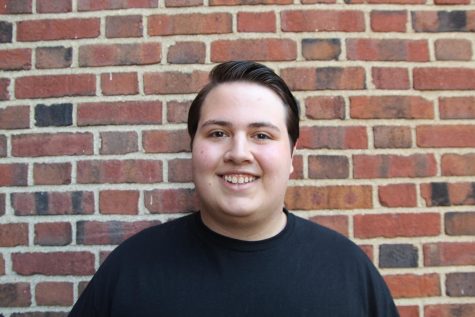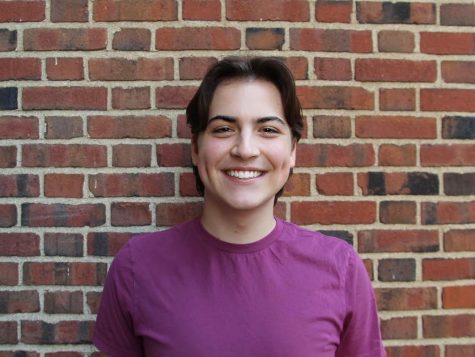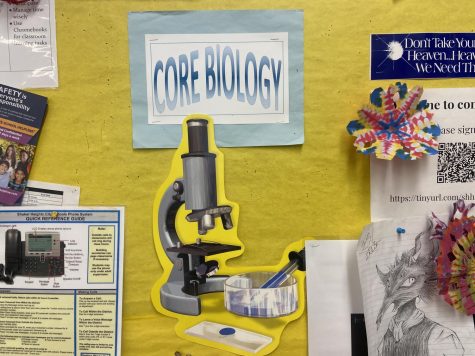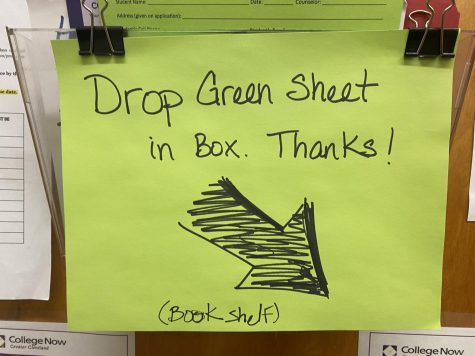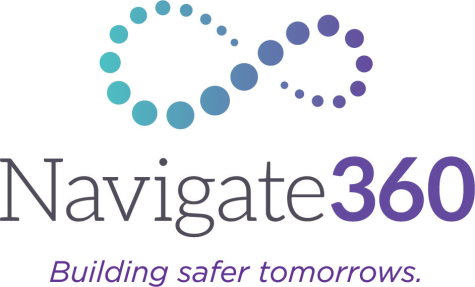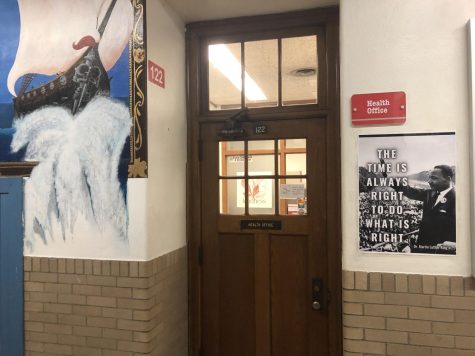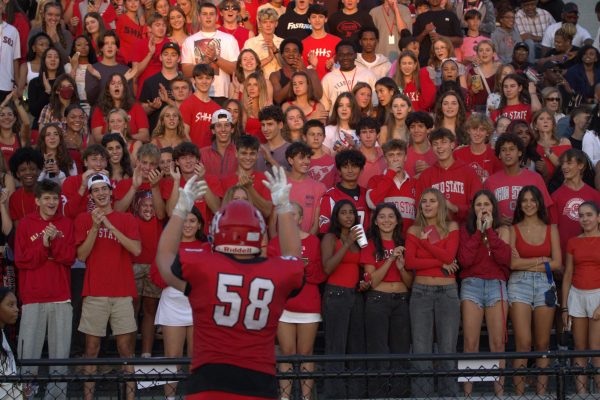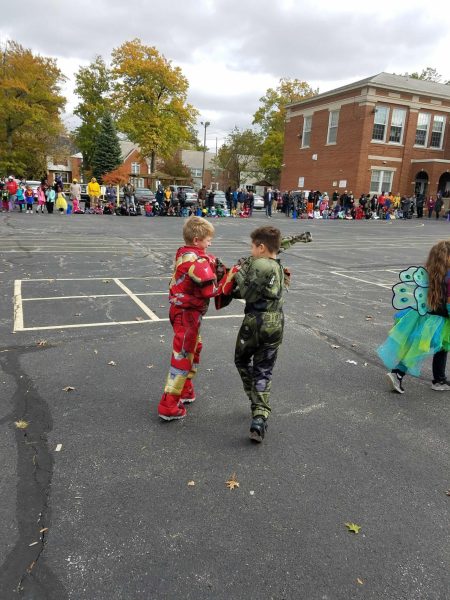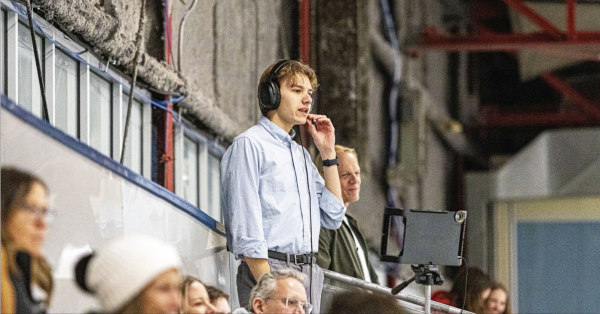“We Did It During a Challenging Time”
Citing COVID protocols that could have increased segregation, Glasner says move to detrack came earlier than planned.
One student sits in AP Psychology class Feb. 5, 2021 at the high school. Concerns about segregated groups of elementary school students returning to buildings during the pandemic accelerated the district’s decision to institute detracking, according to Superintendent David Glasner.
Dr. David Glasner, superintendent, said he recognizes the challenges that detracking in the 2020-21 school year brought.
In a March 10 article, “We Did It The Wrong Way,” some high school teachers expressed concerns about lack of preparation for the integration of honors- and core-level classes.
Glasner responded to the article with a letter to the editor published March 23. “The article presented criticisms of the District’s detracking initiative, but telling the story of such transformative change requires fair and balanced reporting,” he wrote.
“There were a number of different factors and variables that ultimately led to us moving in that direction [in 2020],” Glasner said.
One major factor was the COVID-19 pandemic, he said. When district officials planned the return to in-person learning, they planned for elementary school students to attend in 10- 12-student pods on alternate days. “We wanted to ensure that those pods would be inclusive and integrated and that we were not creating pods of entirely segregated students that basically would spend their entire day together,” Glasner said.
“The reason that we saw that pods could be segregated throughout the school day was because of tracking — because of the structures of tracking — in our district. And so, in order to create integrated and inclusive and diverse pods, we felt like we had to eliminate tracking,” Glasner said.
Providing enriched instruction for some elementary students by removing them from their primary classrooms was one such structure.
While district leaders had already been investigating inequity in classrooms as part of the strategic plan, they were not planning to implement detracking as they did until the pandemic. “Did we think we would address it exactly in this way? No, we had not specified that in the strategic plan,” Glasner said. “But it was definitely something that we expected to navigate in the course of the current strategic plan.”
“We know that the pandemic did not lead to ideal circumstances,” Glasner said. “The way that detracking was rolled out we know was not ideal,” Glasner said. “Independent of the pandemic, we likely would not have taken a rip-the-Band-Aid-off approach.”
Glasner said that not all courses are operating at an advanced level yet. “I think we’ve been pretty open about also acknowledging that there are areas we have to improve in, and for all students to really have access to the kind of rigorous, robust, challenging and supportive kind of curriculum that we know has traditionally been more typical of advanced courses,” he said. “We may not have gotten there in every course yet in every subject area, but that’s certainly our goal. That’s the kind of support that we’re aiming to provide to teachers to help implement that kind of curriculum.”
Glasner said that teachers are receiving a wide range of support, including professional development opportunities, for the newly detracked curriculum. “We have professional learning for all teachers. That includes things like collaborative planning time, which instructional coaches and IB coordinators help to facilitate and help to provide support in,” he said. “That could include department-level meetings, it could include grade-level meetings, it could include team meetings. And these are opportunities where teachers develop curriculum, where they review and revise and strengthen instructional strategies.
“Since we’ve moved to detrack and delevel, a big emphasis of those opportunities has been what kind of curriculum, what kind of instructional strategies can we use to really implement this effectively.”
Observations play a role in helping teachers meet the needs of all students, according to Glasner. “We also have done learning walks and instructional rounds, equity instructional rounds, in all of our school buildings over the course of the past couple of years, where teachers are participating,” he said. “So it could be department chairs, grade-level leaders, we’re walking around visiting classrooms, looking at classrooms through a lens of equity, and how we can improve and strengthen the work that’s happening, learning and teaching in classes.”
According to Glasner, an example of teacher support is working with West Wind Education Policy for mathematics teachers. West Wind Education Policy is a national organization that focuses on “delivering policy analysis, knowledge building, and systemic equity leadership development to grow the capacity of our clients to implement effective policy and practice,” according to the organization’s website.
“That kind of very intensive focus on a subject area and specific grade levels is a model that we’re working to expand because I think we have seen some gains and strides, specifically in math education, as a result of the very intensive professional learning support we provided in that area,” he said.
Glasner said that the district completed a math curriculum review starting with kindergarten to fifth grade, and then moving on to sixth grade through Algebra I, which all students now take in eighth grade.
“We looked at what kind of curricular resources are we using, and do our curricular resources align with having heterogeneous, diverse, integrated, inclusive classrooms where we can differentiate to meet student needs. And so we’ve identified resources that help. Again, I think that provides us with a model for other ways to provide support for more teachers,” Glasner said.
In response to a Language and Literature Department Chairwoman Emily Shrestha’s comment that engaging students of wide-ranging reading ability in a shared text is difficult, Glasner said that diverse reading levels are not unique to high school.
“This is a common challenge, I think, in many subjects — really in all subjects,” he said. “Language and Literature is an area that we need to focus on, in particular, moving forward, just like we’ve done some intensive work around mathematics. I really believe that Language and Literature, English Language Arts, reading — all of those things — is really our next real area of focus.”
Glasner said that he would not characterize the district’s initiation of detracking as right or wrong. “You know, I think I’ve been pretty open about the idea that we did it during a challenging time,” he said. “Was it perfect? No.”
“The feedback that you expressed in the article is valid,” he said. “People have different experiences with this. And that’s as true for teachers as it is for students as it is for others in our community. So, I just want to acknowledge that.”
Comment using your Facebook, Yahoo, AOL or Hotmail account
